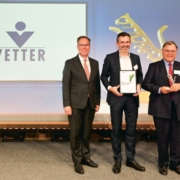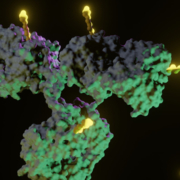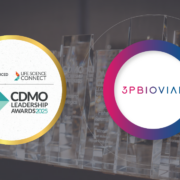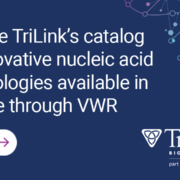Spatial precision in cell analysis is revolutionizing biomedical research. SLACS (Spatially-resolved Laser Activated Cell Sorting) uniquely isolates live microniches within tissues, preserving spatial context and enabling deep biological insights.
ADVERTISEMENT
Day 1 at Chemspec Europe 2025 opened with a dynamic programme that underscored the growing importance of collaboration, innovation, and strategic foresight in the fine and speciality chemicals sector. From thought-provoking keynote sessions to in-depth technical discussions, the conference provided a platform for knowledge exchange and future-oriented dialogue among key players in the industry.
The award jury recognizes strategic and sustainable corporate management.
Antibody-Drug Conjugates (ADCs) have been transformative in oncology, offering targeted cancer treatments that enhance efficacy while sparing healthy cells. However, the potential of ADCs extends well beyond cancer care. From autoimmune diseases to metabolic disorders, advancements in ADC technology are paving the way for breakthroughs across a range of therapeutic areas. This article explores how ADCs are redefining treatment paradigms and improving patient outcomes in diverse fields of medicine.
Explore the evolving world of GLP-1 receptor agonists in Issue 42 of The Altascientist, featuring insights on their expanding applications, early-phase development, and real-world case studies.
3PBIOVIAN, a leading Contract Development and Manufacturing Organization (CDMO) with locations in Pamplona (Spain) and Turku (Finland), has been awarded the prestigious CDMO Leadership Award 2025 in the “Cell & Gene Therapy International” category. This award recognizes the excellence of the services that 3PBIOVIAN provides to the Advanced Therapies industry, solidifying its position as a leader in the international sector.
Freiburg-based Eleva relies on its moss-based platform for the development of new biologics both independently and with partners. A new alliance with Spanish CDMO 3PBIOVIAN now secures clinical production capacity for both activities.
Through a new partnership with VWR, TriLink Biotechnologies has made its catalogue of industry-leading nucleic acid technologies more available in Europe. By improving the ordering process and reducing lead times, this partnership will support early-phase researchers and established commercial clients with cutting-edge mRNA products.
The Technologiepark Heidelberg has been shaping Heidelberg‘s startup ecosystem with 100,000 sqm of lab and office spaces, individual startup support, and top events for over 40 years – offering ideal conditions for established companys and startups in the fields of life sciences, biotech, industry tech, and AI.
High-Quality HIV Antigens for Cutting-Edge Solutions


![product_02_bg[63] product_02_bg[63]](https://european-biotechnology.com/wp-content/uploads/2025/05/product_02_bg63-180x180.png)

 Vetter Pharma International GmbH
Vetter Pharma International GmbH Sino Biological
Sino Biological GettyImages
GettyImages
 Eleva GmbH
Eleva GmbH TriLink Biotechnologies
TriLink Biotechnologies Technologiepark Heidelberg
Technologiepark Heidelberg Sino Biological
Sino Biological